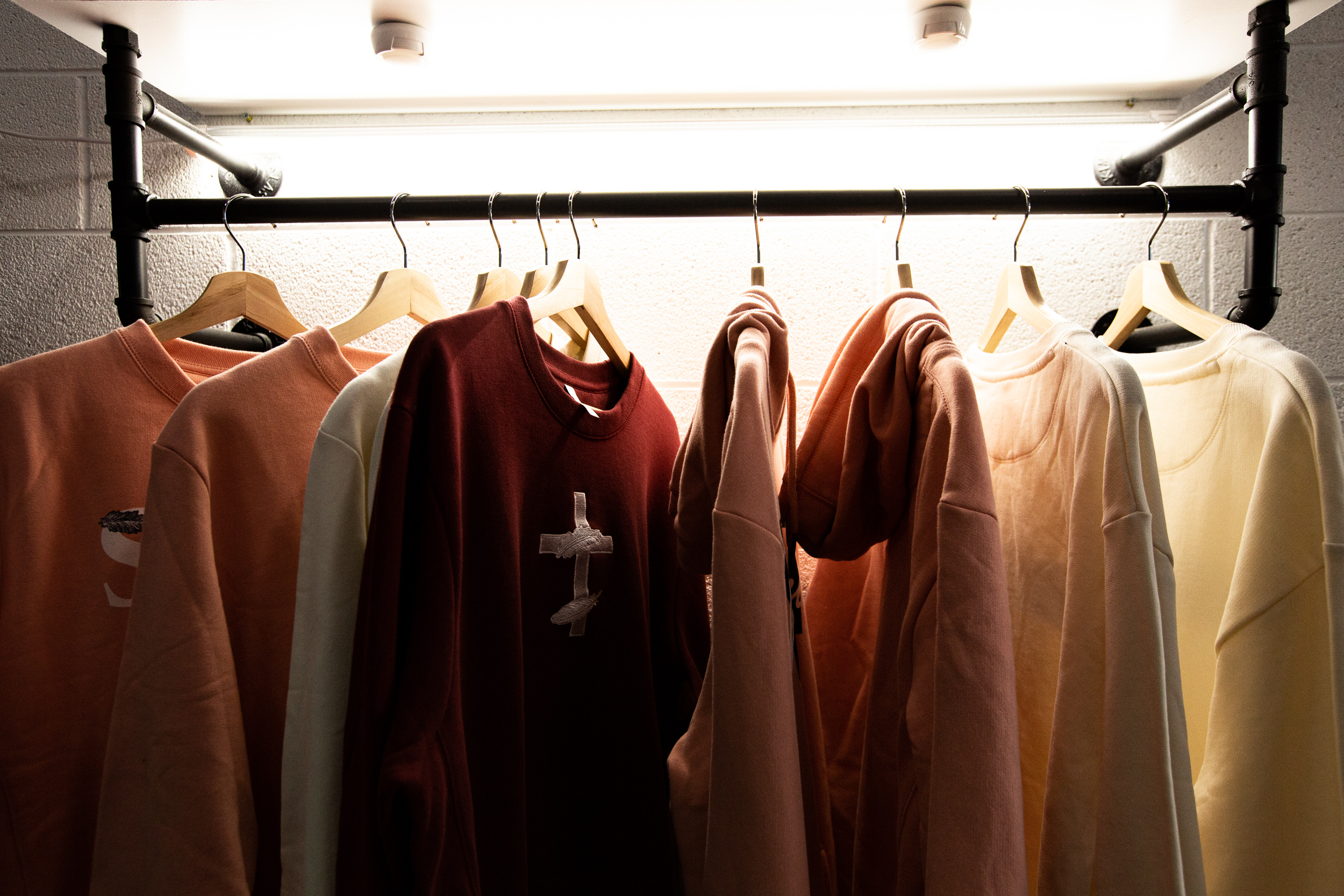The recent state of the world has caused a mass awareness of how our actions affect everything around us. The fashion industry alone produces 20% of wastewater globally and the second-largest polluter of water is textile dyeing, according to Business Insider. However, sustainability in the fashion industry has made major strides in the past couple of years. Prada announced that it would be the first luxury designer brand to sign a sustainability deal, according to Vogue Business, Zara declared that 100% of their clothing will be made from sustainable fabrics by 2025, and Phoebe Philo — former Creative Director of Celine — revealed that she will be starting her own “eco-focused” brand that we are all still patiently waiting for.
Large fashion houses and high-end designers aren’t the only ones pushing limits and breaking norms to help create a better environment. Designers local to Denver are also committing to sustainability and ethicality. Sustainable fashion pioneers like Fancy Tiger Crafts, Equilibrium, and Chromade Co. brought slow fashion to Denver years ago. Additionally, experts like FloraJane DiRienzo, festival director of the Biennial of the Americas, worked to pave the way toward a more eco-friendly future by building conversations and awareness around the topic.
This counterculture of designers and creatives have used their work and voice to educate their communities on this process of consumption and its harmful effects by building their own brands and business models around the idea of slow fashion. This group includes not just the pioneers previously mentioned, but new or up-and-coming designers who want to join in the movement. Designers like Jevon Taylor, Amy Lisojo and Jasmine Lewis have continued to uphold their missions to provide sustainable designs throughout the pandemic while also helping their communities by producing sustainable masks.
READ: The Rise of Slow Fashion In Denver

Despite the harsh effects the fashion industry has on the environment, it is not a lost cause. In fact, trends like thrifting and capsule wardrobes are booming in the fashion scene and instead of just being trendy, they are now preferred. Additionally, new brands and designers who support slow fashion and build fashion-based businesses with sustainability in mind continue to pop up every year. Past Life the Collective (PLC) is one of the newer Denver-based fashion boutiques, having recently launched this past September and featuring their bold slogan: “Unfuck the Future – Slow fashion for people who give a damn.” Founder of PLC, Berkley Gamble said, “This industry notoriously exploits both people and the planet, which is something that consumers should be aware of and educated about. Clothing should not come at the cost of others and the planet.” But with thrifting, capsule wardrobes and local boutiques opening in combination with major fashion houses and brands pledging to be more sustainable in the upcoming years, it means that consumers have a high chance of not only wanting their favorite brands to be sustainable but requiring it.
The fashion industry has seen a dramatic increase in secondhand stores and brands, especially in Denver. Brands like Orenda Lou, Ten Penny Store and Fourth Place have created their own boutiques and brands by reselling highly desired clothing pieces and accessories, demonstrating not only that secondhand clothing is highly desirable, but also that it doesn’t take fashion designers or creating new styles to become a successful fashion brand.
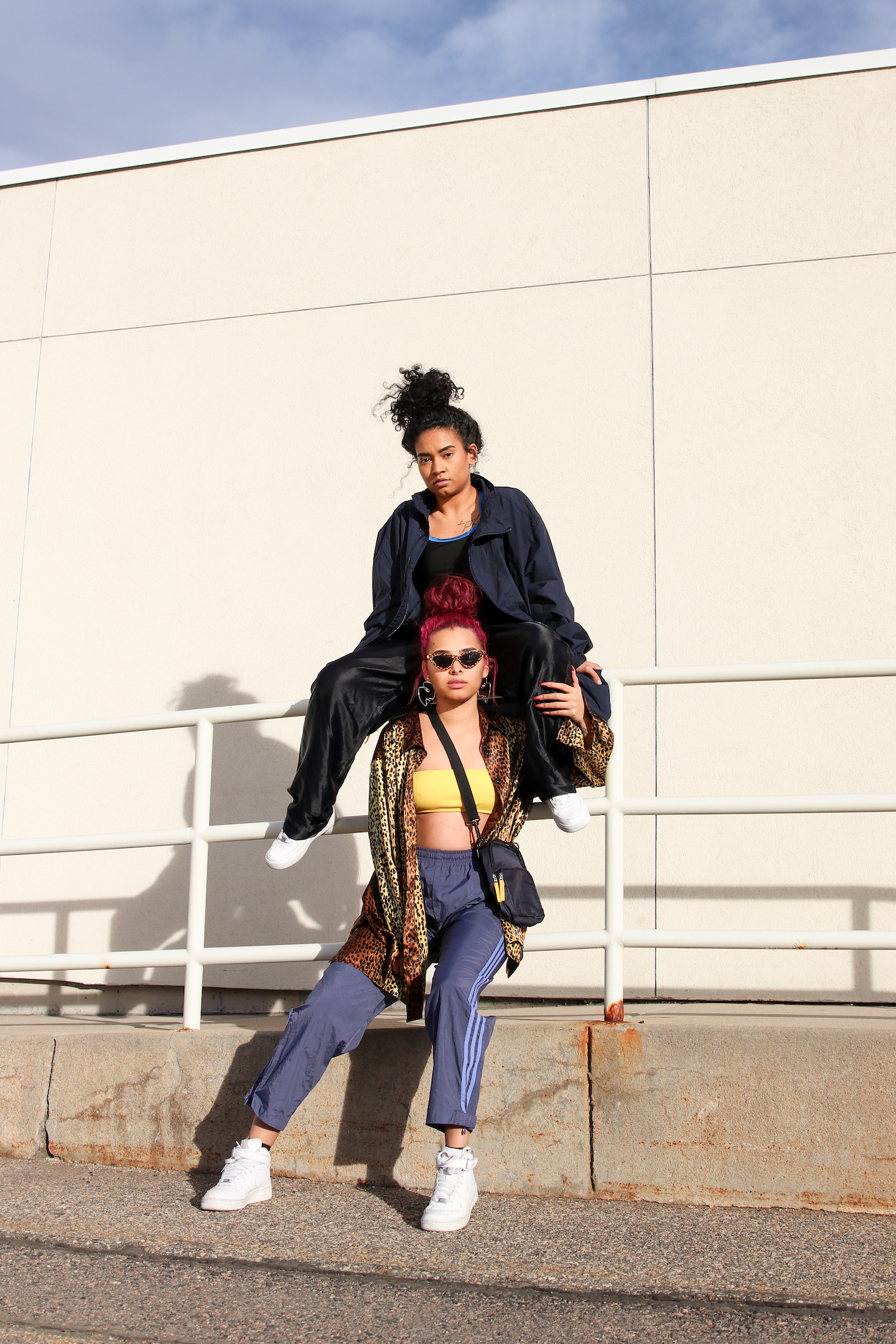
“Fashion is the number two polluter in the world behind gas and oil. Fashion is something that’s accounting for millions and millions of pounds of waste each year along with millions of acres of land damage, and millions of lives being taken advantage of on a global scale,” said Taylor, creator of local brand, False Ego. False Ego builds a “closed-loop” business model, using environmentally friendly packaging and implementing a Textile Recycling program that creates opportunities to contribute to global conservation efforts.
READ: False Ego Celebrates One Year As Denver’s Sustainable Streetwear Brand
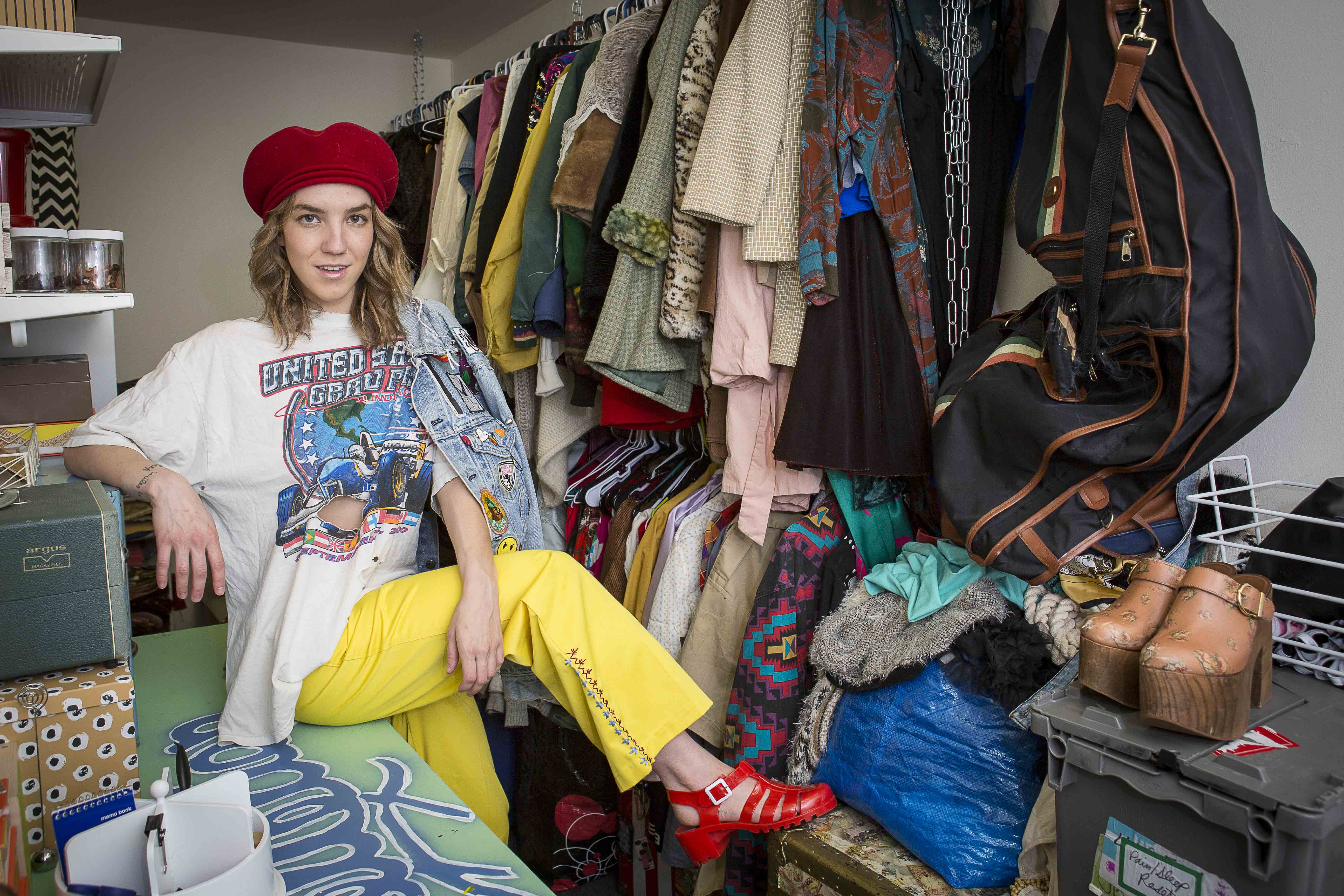
Madelyn Hadel of Rebellelion, another sustainable fashion brand in Denver, said something similar, stating, “In America, we have the luxury of consumption without consequence. Most global brands do not manufacture their clothing in developed countries so it is impossible for us to understand the devastating effects of these manufacturing practices.” Rebellelion is a fashion-focused brand featuring upcycled denim and handmade pieces. Hadel buys strictly second-hand denim, uses leftover scraps from other textile manufacturers, and when new materials are necessary to buy, she sources responsibly.
In addition to new designers popping up in Denver to support work around sustainability, there are other ways that the city is drawing attention to sustainability. Biennial of the Americas hosted its first clínica dedicated to the topic at the McNichols building in 2019, called “Slow Down Your Fashion – Trends in Sustainable Clothing.” The panel discussion delved into how fast fashion is being challenged by the sustainable and eco-friendly movement, discussing leading entrepreneurs and brands in sustainable fashion who are changing consumer habits and attempting to increase the awareness and importance of slow fashion. We also spoke to DiRienzo about the event and what took place.
“The Biennial of the Americas 2019 festival [was] an international event of ideas, art and culture that [assembled] dynamic leaders to identify unique opportunities and solutions to shared challenges across the Americas. We [worked] with our community and international partners and colleagues to choose topics of conversation that [were] timely, relevant and [led] to actionable results,” she said. “The ‘Slow Down Your Fashion: Trends in Sustainable Clothing’ clínica during the festival [considered] the sustainable fashion movement. While issues around sustainability and climate change can feel insurmountable, choosing clothing is one-way individuals can have a role in making a difference. We hope this clínica [expanded] people’s viewpoints of what fashion is, how it can be personalized through sustainable choices, and why our clothing choices matter,” DiRienzo continued.
READ: The Biennial of the Americas Brings International Sustainable Fashion Experts to Denver
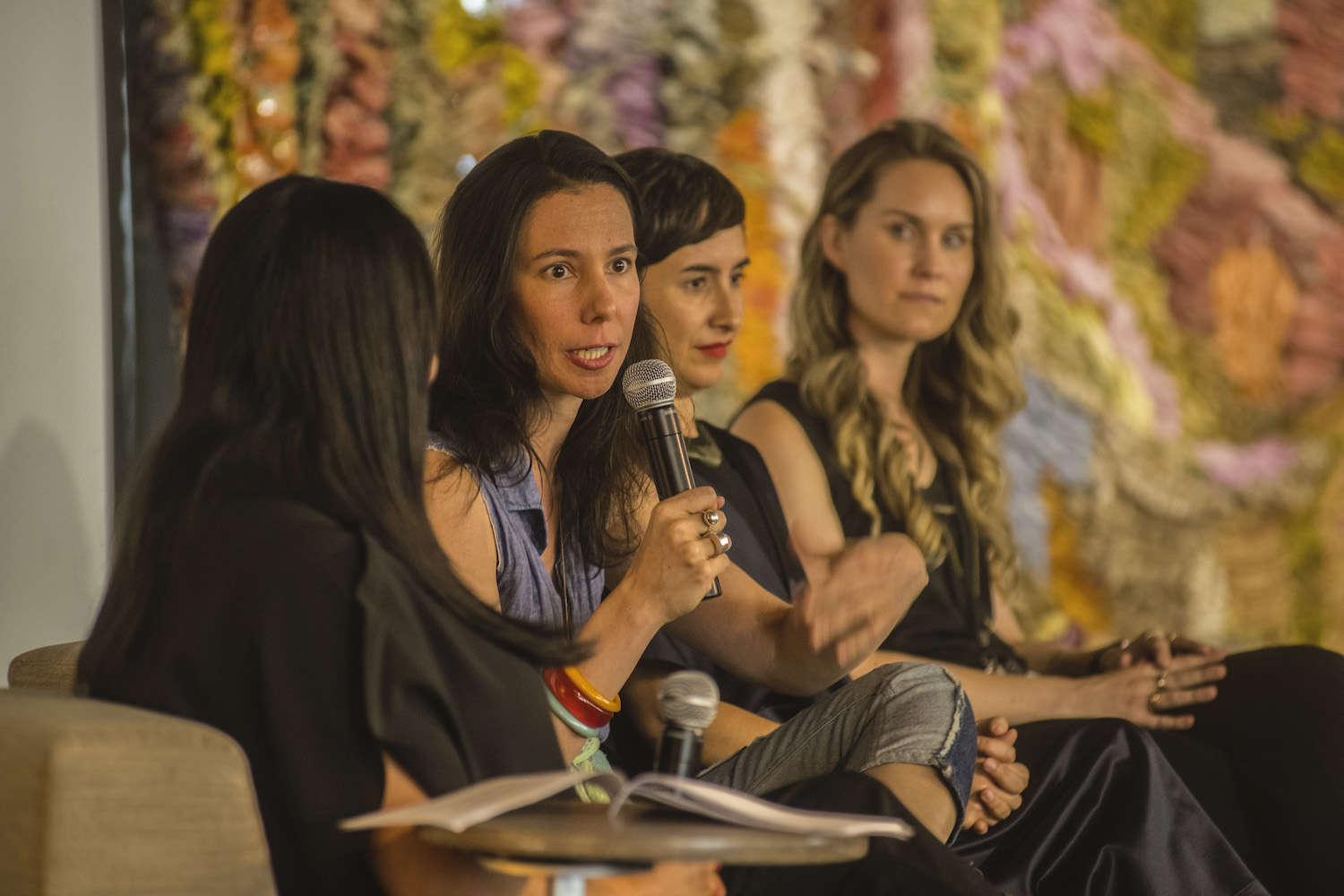
Although sustainable brands — especially in Denver — do tend to see some success, the last 10 months have been a challenge for the fashion industry, especially for small or local fashion-based businesses that heavily rely on foot traffic in their brick and mortar locations. The pandemic has caused several small business owners — even in Denver — to shift their business models and adjust to an online-only retail experience. Denver designers like Lewis and Lisojo have had to shift their usual processes to accommodate the change in fashion retail. Lewis explained how things have changed for her and her business.
“Prior to the shut down I was working on Denver Fashion Week and custom commissions, but with everything closing and events being canceled many orders were postponed. With so much downtime I started making donation masks and that eventually turned into selling masks. This has been my main focus for the last few months as well as brainstorming other ways to adapt my business now that everything is so different,” she said.
Despite the unexpected change of events, Lewis stuck with the identity of her brand and ensured the masks being made were 100% cotton — a material that is both renewable and biodegradable — in addition to making them reusable.
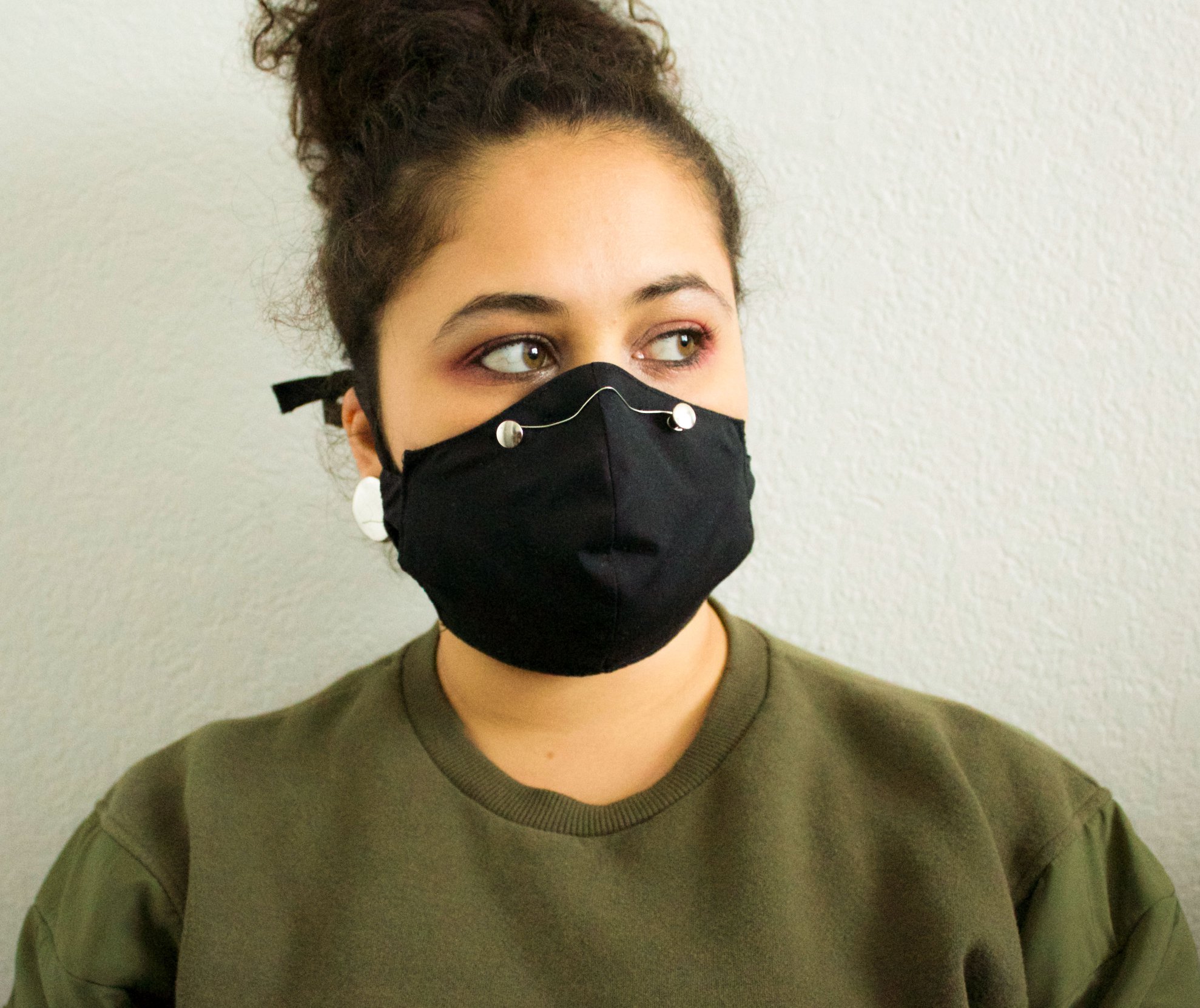
Lisojo’s shift was similar in that she worked with the unfortunate turn of events and used them to help others and create a positive impact.
“We went from creative production to small-batch manufacturing. It seemed like overnight the nation needed masks and supply was low. We were fortunate enough to have the resources on hand and immediately started to produce masks. We made over 400 [cotton-blend, sustainable] masks within weeks, supplying essential workers, local businesses and the community. We learned a new level of productivity. We’ve been able to reinvest and offer new services such as embroidery and vinyl press,” Lisojo explained.
Fashion designers in Denver are not the only ones who are trying to spread the message of the importance of sustainability within the fashion industry. Denver has its very own Office of Sustainability where specialists work to build conversations around the topic too. Sustainability expert and former Public Affairs Administrator for Denver’s Office of Sustainability, Janna West-Heiss, has worked in sustainability for seven years now working to inspire and educate others — both in and outside of work — to live and work through an economic, environmental and social lens. She explained that reducing the amount of new clothing one consumes was found to be one of the top ways individuals can reduce their consumption-based emissions. She also had advice about what designers can do to be more sustainable today.
“Designers can think about avenues for a more closed-looped system. They can think about how to design products that use another waste stream for their input (old clothing, recycled bottles, etc.) and/or designing materials that can easily be taken apart to original compounds, allowing them to be used more easily as an input material. Designers can work to gain transparency around their supply chain and see where there is an opportunity to improve it from a social standpoint,” she explained.
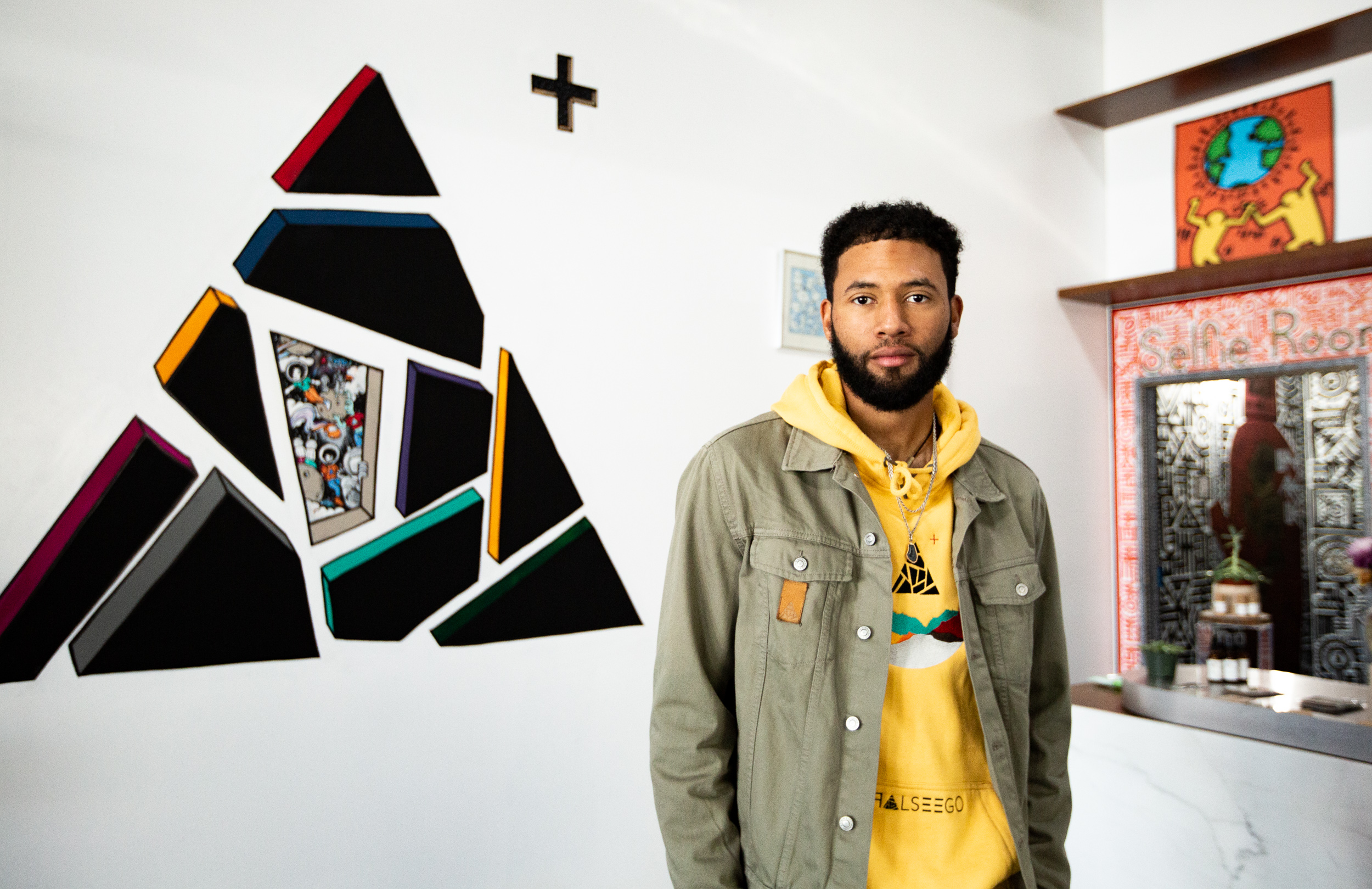
Luckily for both us and the planet, more and more sustainable fashion brands are on the rise. Environmentally-friendly textiles (recycled materials and sustainably grown fiber crops), defending fair wages for workers, minimizing water use and supporting sustainable livelihoods are just some of the components that make a brand ethical and sustainable. Apparel brands that do this are looking out not only for the planet but for those who work to produce and manufacture the styles too.
Both large fashion houses and local Denver designers and brands not only support the sustainable fashion movement but help increase awareness on the subject in hopes of transforming the way consumers shop for clothing. But, they are not the only ones responsible for ensuring the growth of sustainable fashion brands. As consumers, there is so much we can do to help. From shopping locally and thrifting at Denver’s large list of thrift stores to shopping in-store (rather than getting items delivered) and donating clothes you no longer wear to places like Déja Blue Boutique and Plum Consignment, there are so many ways we can help positively change the fashion industry, specifically in Denver. Hadel said it perfectly in our interview with her:
“Sustainability is not just a choice we make once, but a lifestyle we must be dedicated to time and time again.”





